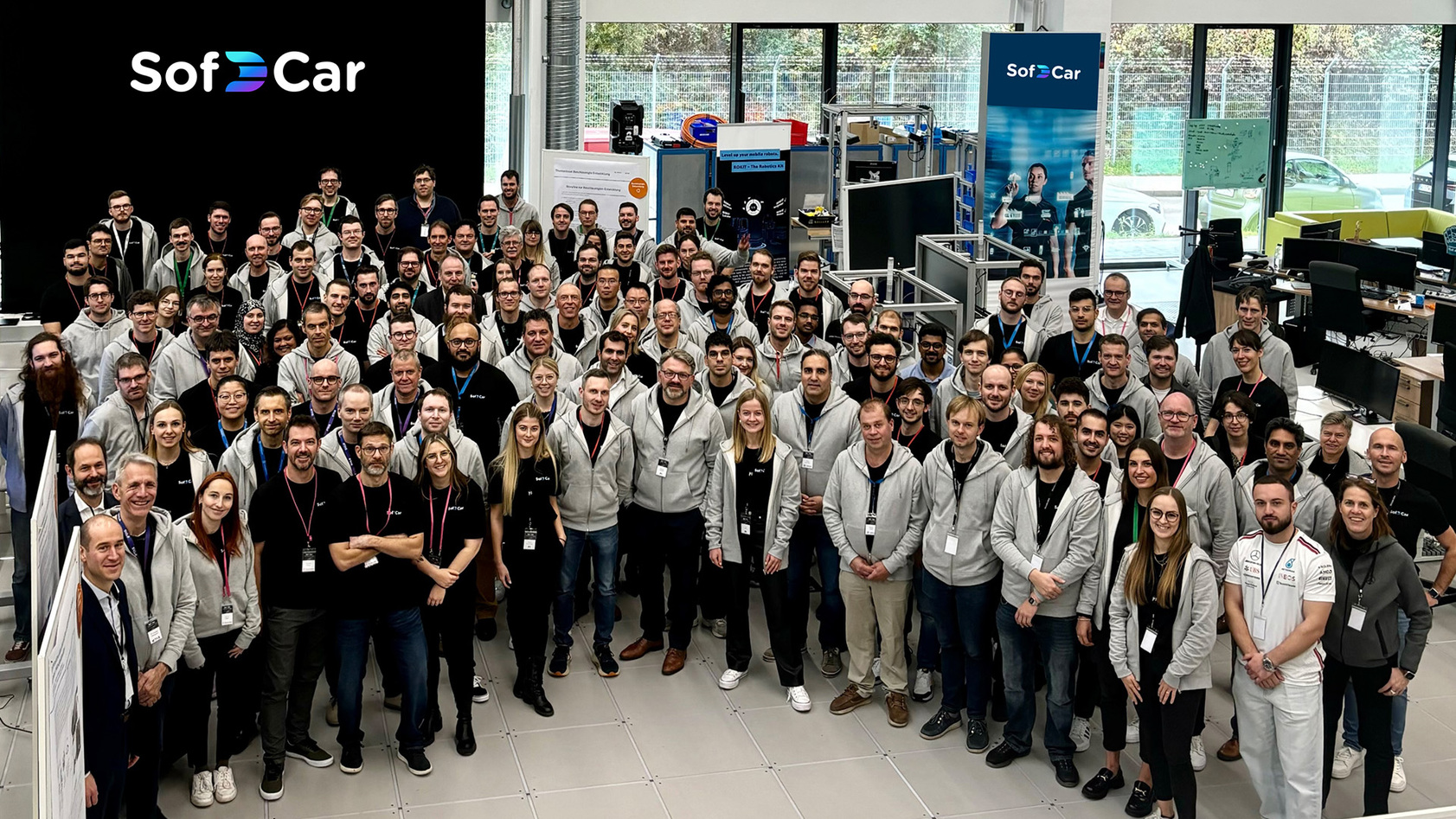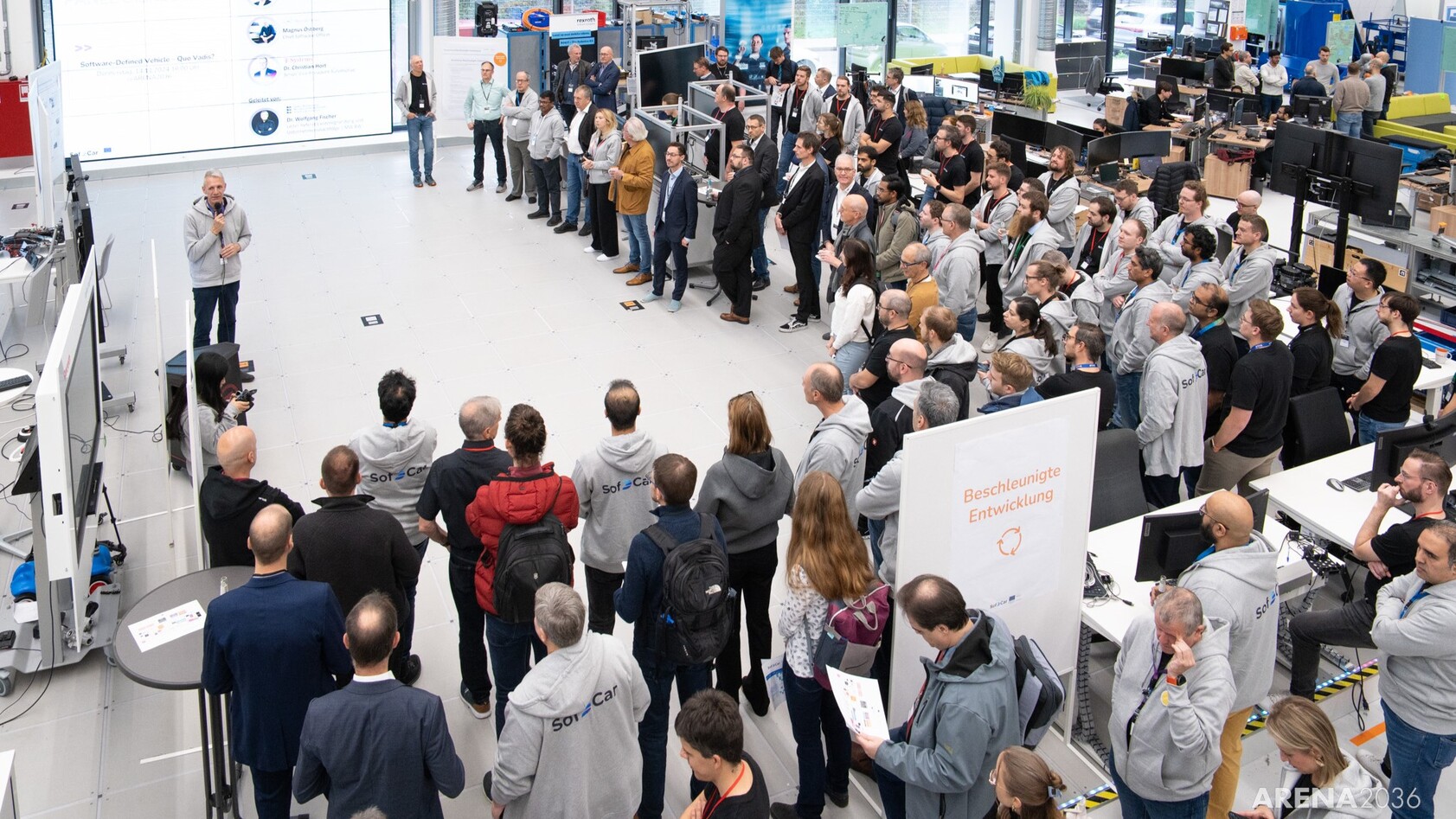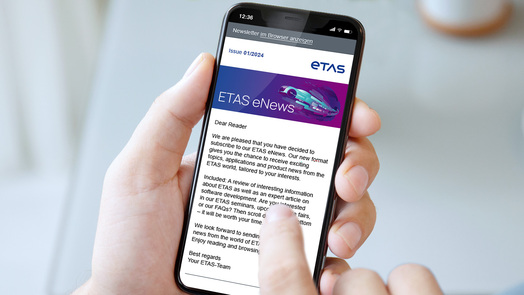12/19/2024
Shaping the future of the software-defined vehicle together
The “Software-Defined Car Consortium” brings together expertise from industry and research
ETAS is one of 13 partners in the “Software-Defined Car Consortium”, an alliance funded by the German Federal Ministry for Economic Affairs and Climate Action. Its goal is to lay the foundations for cutting-edge vehicle architectures and to accelerate the development of software-defined vehicles. ETAS and Bosch have contributed extensive expertise in the areas of embedded systems, software development, and vehicle architectures.
Project for the development of software-defined vehicles
Software is increasingly the key element in modern vehicles, creating entirely new opportunities for innovative features and business models. To successfully navigate this transformation and seize its opportunities, a total of 13 partners from industry and research – including ETAS and Bosch – have joined forces in the “Software-Defined Car Consortium” (SofDCar), a project funded by the German Federal Ministry of Economics and Climate Action (BMWK). This consortium has laid the foundations for cutting-edge vehicle architectures and accelerated the development of software-defined vehicles (SDVs). The recently completed project addressed key market trends such as the growing demand for personalized driving experiences and over-the-air updates, offering companies opportunities to invest in cutting-edge technologies.
Focus on software: managing complexity, enabling innovation
Today’s vehicles can be equipped with up to 100 electronic control units. This poses challenges for the automotive industry, particularly in terms of managing complexity and the need to update software and hardware over an entire vehicle life cycle of up to 20 years. Future models will therefore rely increasingly on a small number of high-performance computers (HPCs) as well as zonal architectures and modular software solutions. The SofDCar consortium has developed innovative solutions to address these challenges, paving the way for a new era of mobility. The goal of this project was to reduce the development time for new vehicle features by up to 90 percent and to significantly enhance the efficiency of software integration.
Four work streams for a holistic approach
Using a “data loop” and “digital twin”, the project was able to integrate the vehicle into a connected system. This enabled efficient data use, digital sustainability, and the implementation of innovative use cases that can be updated via over-the-air (OTA) updates under the concept of “re-deployment”. Many of the software modules were developed under open-source licenses and shared within the Eclipse SDV community. In this way, the partners to the SofDCar project were able to strengthen this now industry-wide initiative at an early stage. These development modules resulted in practical customer applications, which were later showcased as “demonstrators” in various vehicles.
Tech & Result Summit: showcasing SofDCar innovations
The results of the SofDCar project were presented at the Tech & Result Summit on November 14, 2024, at the Arena2036 in Stuttgart. Participants enjoyed an exhibition-style format, gaining exclusive insights into the latest research results and witnessing live demonstrations of vehicle models in operation. The event provided numerous networking opportunities, fostering collaboration and exchange.
A high-profile panel discussion titled “SDV – Quo Vadis?” featured Christian Uebber (ETAS CTO), Magnus Östberg (Mercedes-Benz CSO), and Dr. Christian Hort (T-Systems Senior Vice President Automotive), moderated by Dr. Wolfgang Fischer (Ministry of Economic Affairs, Labor and Tourism Baden-Württemberg).
Shaping the future, strengthening the German automotive industry
The SofDCar project makes a significant contribution to bolstering the German automotive industry’s competitiveness on a global scale while actively shaping the future of mobility. Moreover, the promotion of open-source software – via Eclipse SDV, for example – is encouraging the industry to swap and share solutions.
Strong partners, shared success
The collaboration between 13 renowned partners from industry and research ensured a broad range of expertise and resources, with the funding program from the German Federal Ministry for Economic Affairs and Climate Action providing an ideal framework for cooperation. ETAS and Bosch contributed extensive expertise in the areas of embedded systems, software development, and vehicle architectures, making a key contribution to the project’s success both on the technological front and through their management of the consortium.




